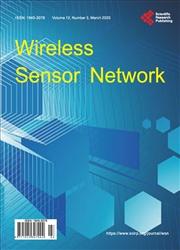On Energy-Efficient Time Synchronization for Wireless Sensors under Large-Scale and Small-Scale Fading Effects
引用次数: 2
Abstract
In this work, the existing trade-off between time synchronization quality and energy is studied for both large-scale and small-scale fading wireless channels. We analyze the clock offset estimation problem using one-way, two-way and N-way message exchange mechanisms affected by Gaussian and exponentially distributed impairments. Our main contribution is a general relationship between the total energy required for synchronizing a wireless sensor network and the clock offset estimation error by means of the transmit power, number of transmitted messages and average message delay, deriving the energy optimal lower bound as a function of the time synchronization quality and the number of hops in a multi-hop network.大规模和小规模衰落影响下无线传感器的节能时间同步研究
本文研究了大规模和小规模衰落无线信道中存在的时间同步质量和能量的权衡问题。我们分析了受高斯分布和指数分布损伤影响的单向、双向和n向消息交换机制的时钟偏移估计问题。我们的主要贡献是在同步无线传感器网络所需的总能量与时钟偏移估计误差(通过发射功率、传输消息数和平均消息延迟)之间建立了一般关系,推导出了能量的最佳下界,作为多跳网络中时间同步质量和跳数的函数。
本文章由计算机程序翻译,如有差异,请以英文原文为准。
求助全文
约1分钟内获得全文
求助全文

 求助内容:
求助内容: 应助结果提醒方式:
应助结果提醒方式:


